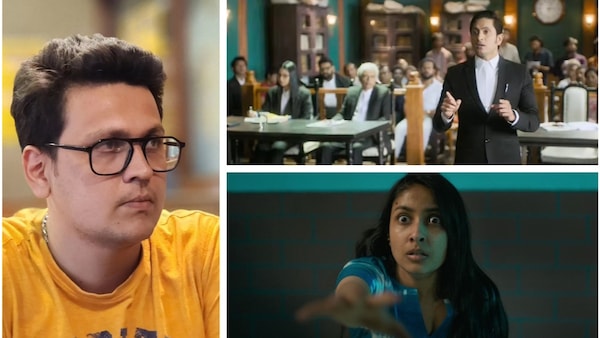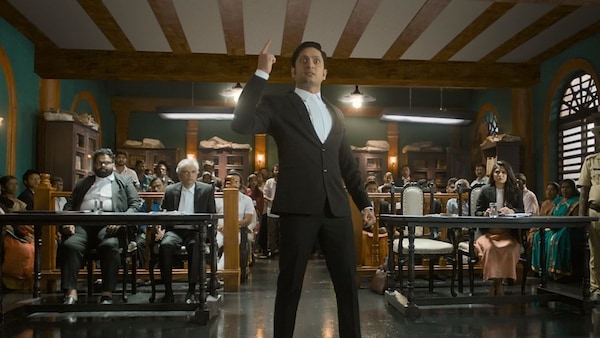Yuddhakaanda Chapter 2 director Pavan Bhat: We took some liberties with legal proceedings for cinematic advantage | Exclusive
Yuddhakaanda Chapter 2, starring Krishna Ajai Rao and Archana Jois in the lead, is now on OTT. Here, Pavan discusses what may seem like a lack of sensitivity in some scenes.

Last Updated: 08.01 PM, Jun 20, 2025
Justice delayed is justice denied – this was the basic premise that writer-director Pavan Bhat worked on for his sophomore film, Yuddhakaanda Chapter 2, which he pitched to actor Krishna Ajai Rao, who also filled in as producer eventually. The film released in theatres on April 18, and had a slow but steady improvement in footfalls, eventually registering a 50-day theatrical run, before finally making its way to OTT. The film has dropped on Amazon Prime Video as of June 20, 2025. OTTplay caught up with Pavan for a quick discussion about the film, especially the cinematic liberties in dramatizing court proceedings, among others. (Spoilers ahead)

When the trailer of Yuddhakaanda Chapter 2 came out, you had all but given away the entire plot of the film. It was understood that Ajai’s character would get Archana Jois’ Niveditha the justice she was seeking. It’s the how that was left out. Was that a conscious decision to prepare audiences?
Yes, it was a conscious call to prepare the audiences for what is to come. Yuddhakaanda Chapter 2 is not about the what, it is about how he fights for her freedom and, hence, we wanted audiences to come to theatres with clear expectations – this is what it is, nothing more, nothing less.
You’ve said that the spark for the story came from incidents like the Nirbhaya case and the sheer amount of time the legal procedures take. How much research went into writing the script of Yuddhakaanda Chapter 2?
I am not a lawyer, but I did some basic research on the IPC sections I intended to use in the story and then narrated it to several lawyers. We got a lot of suggestions from them which we incorporated in the script. It took us around 6-8 months after the first draft to lock the final script that went into production. The idea was to ensure that there would be no changes once we go on floors and so we took ample time to get everything right.
Also read: Krishna Ajai Rao on Yuddhakaanda: I produced the film to put me alongside frontline heroes
Since you mentioned the time spent in pre-production research, one of the things that struck me while watching the film was a major failure on your part in not only naming the minor child, but also including a public disclosure of the horrendous abuse she was subjected to, instead of holding that in-camera. This is something that the Telugu film Court got right...
The scene in question, in which a doctor describes the mutilation of the child’s genitalia in an open courtroom, was a conscious decision on our part to invoke a reaction in Archana’s character that was central to the plot. We needed that cinematic advantage from the mother’s reaction to this revelation. Also, there is a marked difference in watching 5 people reacting to a piece of information, vis a vis 50 people. That shock and disbelief from 50 faces is what we were gunning for. Having said that, my understanding is that an in-camera proceeding is required only if requested by all parties involved; I could be wrong on this. I understand your point and the sensitivity of the matter, but this was not brought up in any of our discussions with legal experts. Now, looking at it, it does seem like a miss and is something we should look at more carefully in our future endeavours.





